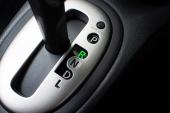High Systolic BP, LDL at a Young Age Matter Later in Life
Even if a patient addresses these factors by age 55, they could still be extra vulnerable to CHD in their older years.

High levels of systolic blood pressure and LDL cholesterol early in life are linked to greater likelihood of coronary heart disease (CHD) after age 55, independent of later-life risk factors, an analysis of data from the UK Biobank suggest.
The results, published last week in PLoS ONE, “support the importance of lifelong risk factor control in young individuals, whose risk of CHD accumulates throughout life,” investigators say. On the flip side, LDL and systolic BP still raised risk at all ages, so “treatment should not be withheld in the elderly based on age alone,” they add.
This isn’t the first study to suggest that lower lifetime BP and LDL levels translate to lower risk of disease. Earlier work has shown “your risk of coronary heart disease is proportional to not only the magnitude of your risk factors . . . , but also to the duration of exposure,” said Nelson Wang, MD, PhD (Royal Prince Alfred Hospital, Sydney, Australia), one of the new paper’s two first authors.
He told TCTMD that their study adds another layer by looking at how age influences the relationship between exposure and risk.
Cardiologists, Wang said, can use this information when counseling patients. “Typically, when a clinician sees a young patient, they are stratified as low risk, because [older] age is the major risk factor for coronary disease,” he noted. Knowing how exposure to LDL, systolic BP, and other factors adds up over decades should encourage more aggressive treatment at an earlier age, said Wang.
UK Biobank Data
With UK Biobank data, the researchers conducted a three-sample mendelian randomization analysis for LDL cholesterol (n = 136,648 people), systolic BP (n = 135,431 people), and CHD (n =24,052 cases).
Univariable analyses showed associations between exposure to LDL cholesterol and total CHD were consistent no matter whether patients were age ≤ 55 years, ≤ 60 years, or ≤ 65 years at the time of enrollment. For systolic BP, the association was age dependent and grew weaker with older age.
Incident CHD—disease that developed at certain time points—was strongly associated with lifetime exposure to systolic BP and LDL. For each 1-mmol/L lower exposure to LDL over the lifetime, the likelihood of developing CHD rose by 52% for those aged ≤ 55 years, by 50% for those aged ≤ 60 years, and by 51% for those aged ≤ 65 years (P for heterogeneity = 0.995). Similarly, for each 10-mm Hg lower exposure to systolic BP, the likelihood of developing CHD rose by 30% for those aged ≤ 55 years, by 29% for those aged ≤ 60 years, and by 37% for those aged ≤ 65 years (P for heterogeneity = 0.667).
With multivariable mendelian randomization, exposure to elevated LDL at age 55 or younger was linked to higher CHD risk independent of subsequent LDL level (OR 1.68 per 1 mmol/L; 95% CI 1.20-2.34). The same was true for exposure to elevated systolic BP (OR 1.33 per 10 mm Hg; 95% CI 1.18-1.51). Genetically mediated levels of systolic BP and LDL beyond the age of 55 did not, after adjusting for levels at a younger age, significantly impact CHD risk.
Wang cautioned that the study is observational and thus only capable of showing association, not causation. Its findings “are food for thought, but more studies still need to be done,” he said.
“I think the big question that a lot of people want answered is: when should we start implementing strategies to start treating elevated risk factors? How early? How young?” Wang noted. Trials looking at this question will take decades to complete, so their analysis and others like it help fill in the knowledge gap.
Caitlin E. Cox is Executive Editor of TCTMD and Associate Director, Editorial Content at the Cardiovascular Research Foundation. She produces the…
Read Full BioSources
Wang N, Mustafa R, Zuber B, et al. Association between systolic blood pressure and low-density lipoprotein cholesterol with coronary heart disease according to age. PLoS ONE. 18(12): e0295004.
Disclosures
- Wang and Mustafa report no relevant conflicts of interest.





Comments